Bengaluru, Apr 10: The Imam of the grand mosque of Makkah, who is currently in India, has attracted unprecedented crowds in two prominent cities of Karnataka without much publicity.

Sheikh Saleh bin Muhammad Al Taleb on Friday delivering the juma sermon before a mammoth gathering at the Eidgah in Rajiv Nagar in Mysuru and then addressed an Islamic conference at Palace Grounds in Bengaluru.
According to an estimate, nearly two lakh Muslims had converged at the ground to listen to the Imam in Mysuru. People started flocking the grounds from 10 a.m., ahead of the arrival of the Imam, who came at 1 pm.
The 10-minute discourse was followed by a mass prayer. When the prayer concluded, people vied with each other to touch the Imam.
In Bengaluru too the number of participates at the Imam's event was beyond expectation. This is the first time in the history of these two cities a foreign scholar attracting such large crowds, it is sad.
Karnataka chief minister Siddaramaiah welcomed the Imam to Karnataka.
On Sunday, the Imam launched the Peace Internet Radio set up by the Wisdom Global Islamic Mission at Mini Ooty, near Malappuram in Kerala. He also laid the foundation stone for the new academic block of Jamia Al Hind Al Islamia. The round-the-clock radio will have 52 programmes meant to propagate values and wisdom among adults and children.
Also Read: Mysuru: Makkah imam urges Muslims to love, help people of all religions
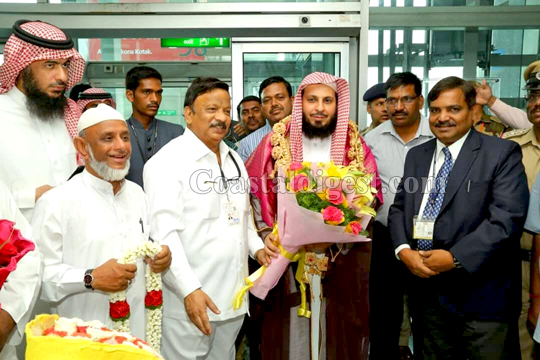

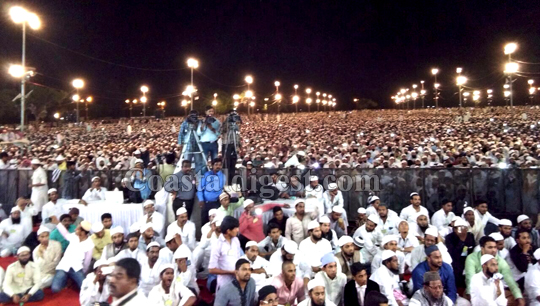
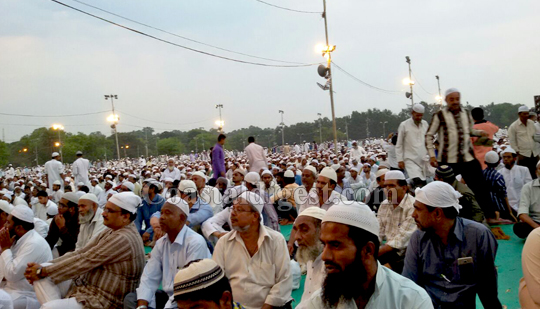
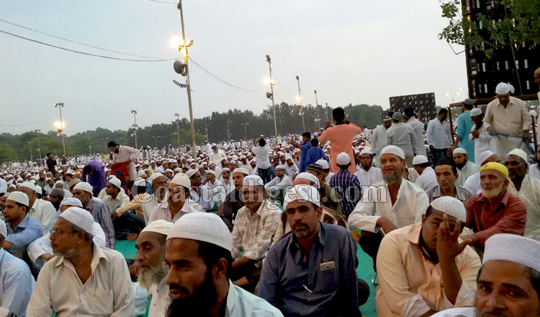
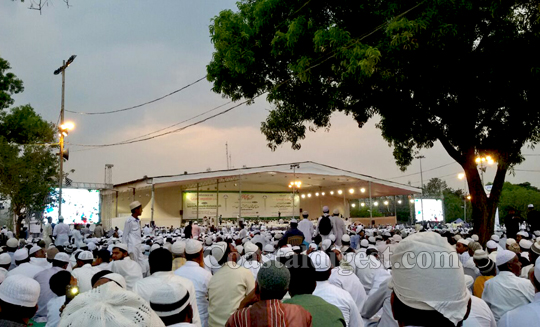
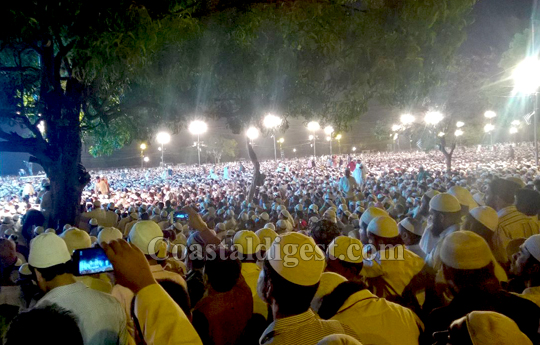
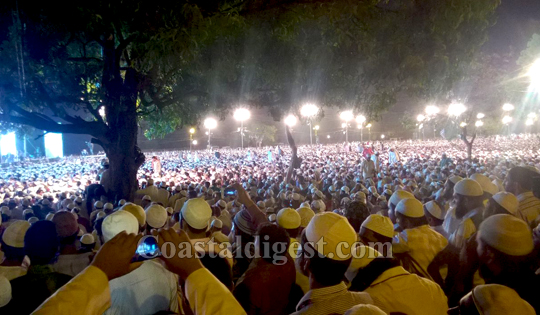
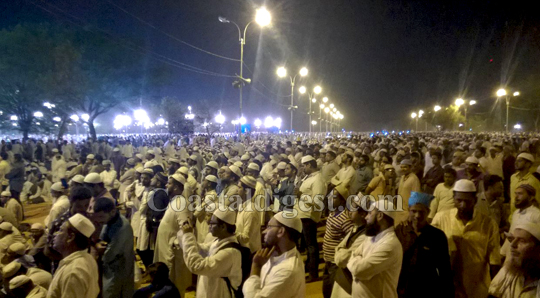






Comments
Mashallah -
People showed their love to Imam, Allah Bless All.
Worth praise
Masha allah ...
Masha ALLAH - A good message by the Imam -- Love people and help people of all religions....
A leader should be like this, who will call the followers to do GOOD and help the NEEDY... the irony is that he called to help all religions not just Muslim
A true message of ISLAM which is alwz BLINDED in the MEDIA...
Add new comment